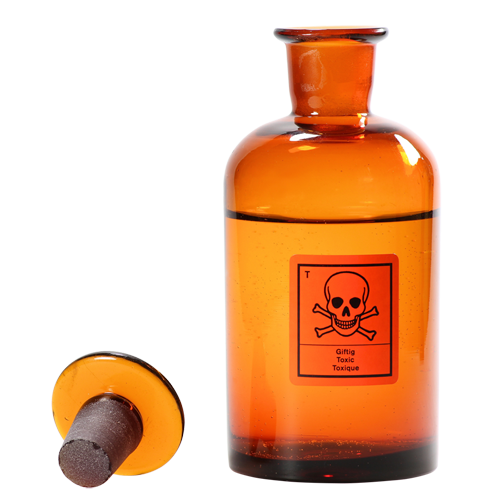Whether it affects a child or an adult, drug intoxication can quickly turn into a tragedy. Here is the best way to respond in this type of situation.
Intoxication—voluntary or not!
A drug intoxication can occur following accidental or voluntary ingestion of medication. Overdosage of a medication—whether it is due to inadvertently doubling a dose, taking an excessive dose to obtain a heightened effect, or an accidental or voluntary intoxication—must always be considered serious. It must never be taken lightly or left to chance.
Misuse of medication, overdosage, and drug intoxications are frequent causes of emergency admissions and hospitalization. From a medical standpoint, patient management in some of these cases can prove to be complex. As is the case for many other medical issues, prevention always remains the best option. For additional information, read the following text: Preventing drug intoxications.
It is important to note that children and the elderly are especially at risk of drug overdosage and of suffering the consequences. For additional information about the risk of drug overdosage in children, read the following text: Accurately determining the dose of children’s medication.
The importance of an appropriate response
Not all cases of drug overdosage are considered to be serious. However, drug intoxications often require an immediate evaluation. It is difficult to estimate the possible consequences of drug overdosage or drug intoxication. This is why case management for patients in this situation should always rely on the skills of knowledgeable healthcare professionals.
In less serious cases, it may be advisable to contact your pharmacist to learn about the possible consequences and what course of action to take. This is the case, for instance, if you accidentally doubled the dose of one of your medications or if you have exceeded it slightly.
However, most cases of drug overdosage or drug intoxication require animmediate call to a poison centre. This course of action is especially true if a child has taken medication that was not intended for him/her or in the case of an attempted suicide. If the patient is unconscious or has stopped breathing, call 9-1-1.
Here is some advice about what action to take in the case of drug intoxication:
- As a precaution, always have the telephone number of the poison centre in your area at hand (in your telephone contacts, on the refrigerator, on your bedside table, etc.).
- In the case of intoxication, remain calm. You will be in a better state of mind to manage the situation effectively.
- Do not waste time trying to do your own research, on the internet for instance. Call a specialist immediately (pharmacist, poison centre operator, etc.) or call 9-1-1. In the case of a drug intoxication, each second counts, so efficiency is crucial.
- Poison centre professionals will ask you questions to get a better understanding of the potential danger of the situation. Among other things, you will be asked to describe the patient’s general demeanor, when the medication was taken, and if he/she has any known illnesses. If possible, have the medication in question at hand. Next, recommendations adapted to the situation and to the patient’s condition will be made.
Remember that your pharmacist is always there to help you and to answer your questions concerning any health issues! When it comes to optimal and safe use of medication, your pharmacist is an expert. Make him/her your reference person.

